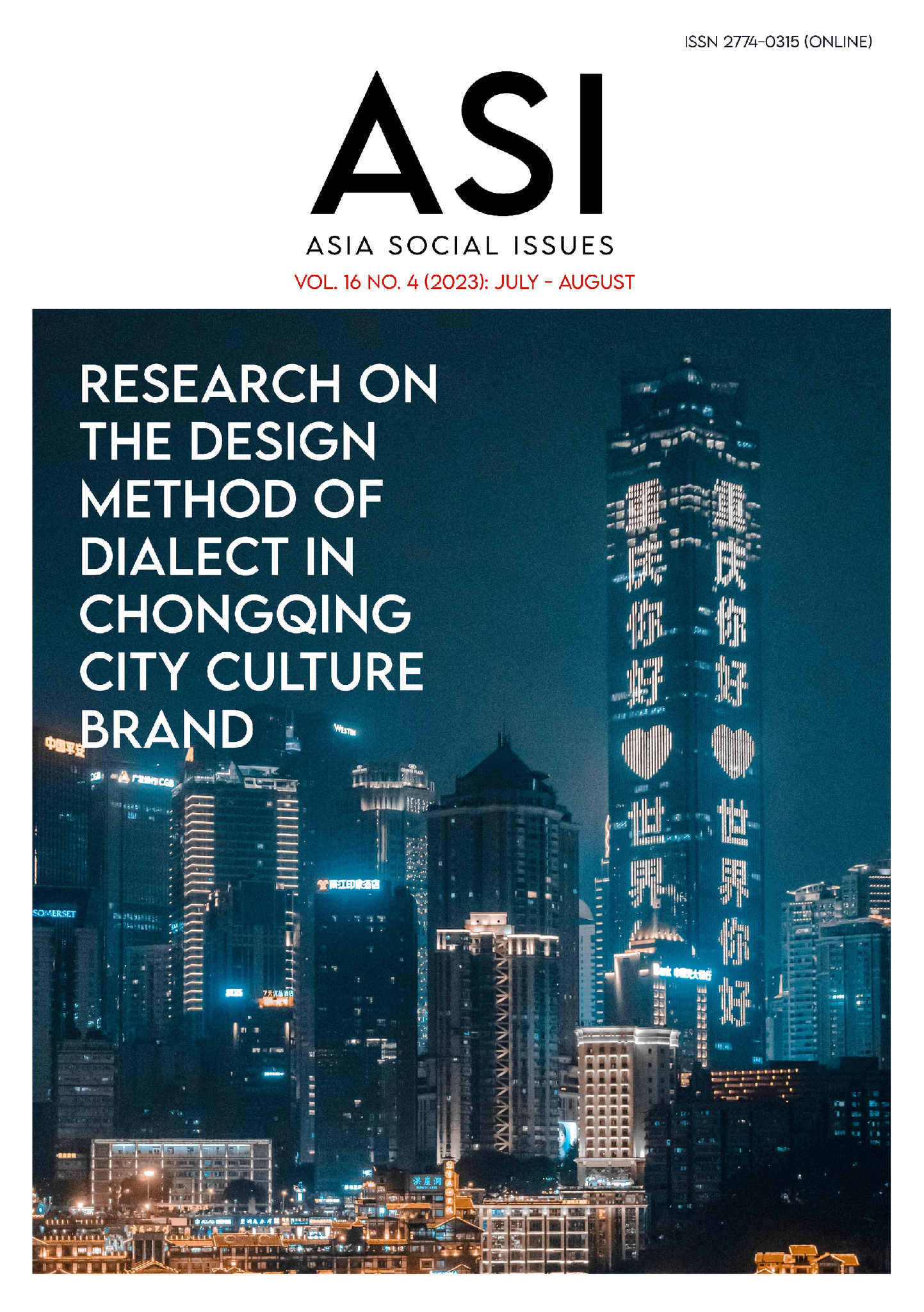A Corporate Social Responsibility Framework for China’s Integrated Rural Tourism Development
Main Article Content
Abstract
This research aims to develop a CSR framework for China’s IRT development. CSR has been perceived as an innovative way to engage with emerging issues. Tourism enterprises have increasingly contributed to society through CSR. Although the application of CSR in the tourism field has been widely investigated, there is a significant lack of research exploring CSR in China’s tourism development, particularly in rural tourism. IRT connecting multiple stakeholders to integrate tourism development with localities is necessary for current China. The previous experience implies that tourism enterprises can facilitate IRT development through well-designed CSR. Therefore, this study discusses the potential of CSR in promoting China’s IRT development and its implementation by interviewing field experts. The findings demonstrate that enterprises can promote IRT by conducting the proposed CSR. Moreover, the study reveals that successful CSR adoption requires the collaboration of local government and residents. Theoretically, this research develops a CSR framework that suits China’s context and offers theoretical support for CSR practices. The proposed CSR framework offers stakeholders useful suggestions to engage in CSR, promoting IRT development effectively.
Article Details

This work is licensed under a Creative Commons Attribution-NonCommercial-NoDerivatives 4.0 International License.
Copyright: CC BY-NC-ND 4.0
References
Bradly, A. (2015). The business case for community investment: Evidence from Fiji’s tourism industry. Social Responsibility Journal, 11(2), 242-257.
Cawley, M., & Gillmor, D. A. (2008). Integrated rural tourism: Concepts and practice. Annals of tourism research, 35(2), 316-337.
Coles, T., Fenclova, E., & Dinan, C. (2013). Tourism and corporate social responsibility: A critical review and research agenda. Tourism Management Perspectives, 6, 122-141.
Dahlsrud, A. (2008). How corporate social responsibility is defined: an analysis of 37 definitions. Corporate social responsibility and environmental management, 15(1), 1-13.
Font, X., & Lynes, J. (2018). Corporate social responsibility in tourism and hospitality. Journal of Sustainable Tourism, 26(7), 1027-1042.
Gao, S., Huang, S., & Huang, Y. (2009). Rural tourism development in China. International journal of tourism research, 11(5), 439-450.
Hughes, E., & Scheyvens, R. (2016). Corporate social responsibility in tourism post-2015: A development first approach. Tourism Geographies, 18(5), 469-482.
Lee, S., & Park, S. Y. (2009). Do socially responsible activities help hotels and casinos achieve their financial goals? International journal of hospitality management, 28(1), 105-112.
Marzo-Navarro, M., Pedraja-Iglesias, M., & Vinzón, L. (2017). Key variables for developing integrated rural tourism. Tourism Geographies, 19(4), 575-594.
Oliver, T., & Jenkins, T. (2003). Sustaining rural landscapes: The role of integrated tourism. Landscape Research, 28(3), 293-307.
Panyik, E., Costa, C., & Rátz, T. (2011). Implementing integrated rural tourism: An event-based approach. Tourism Management, 32(6), 1352-1363.
Saxena, G., & Ilbery, B. (2008). Integrated rural tourism a border case study. Annals of Tourism Research, 35(1), 233-254.
Scheyvens, R., Banks, G., & Hughes, E. (2016). The private sector and the SDGs: The need to move beyond “business as usual”. Sustainable Development, 24(6), 371-382.
Su, X., Wang, H., & Wen, T. (2013). Profit, responsibility, and the moral economy of tourism. Annals of Tourism Research, 43, 231-250.
Uduji, J. I., Okolo‐Obasi, E. N., & Asongu, S. A. (2020). Sustaining cultural tourism through higher female participation in Nigeria: The role of corporate social responsibility in oil host communities. International Journal of Tourism Research, 22(1), 120-143.
Wang, L., & Yotsumoto, Y. (2019). Conflict in tourism development in rural China. Tourism Management, 70, 188-200.
Weng, S., & Peng, H. (2014). Tourism development, rights consciousness, and the empowerment of Chinese historical village communities. Tourism Geographies, 16(5), 772-784.
Xue, L., Kerstetter, D., & Hunt, C. (2017). Tourism development and changing rural identity in China. Annals of Tourism Research, 66, 170-182.
Yin, J., & Zhang, Y. (2012). Institutional dynamics and corporate social responsibility (CSR) in an emerging country context: Evidence from China. Journal of business ethics, 111(2), 301-316.
Zeng, B., & Wang, C. (2019). Research progress in corporate social responsibility in the context of ‘tourism-assisting the poor’ in China. Journal of China Tourism Research, 15(3), 379-401.


